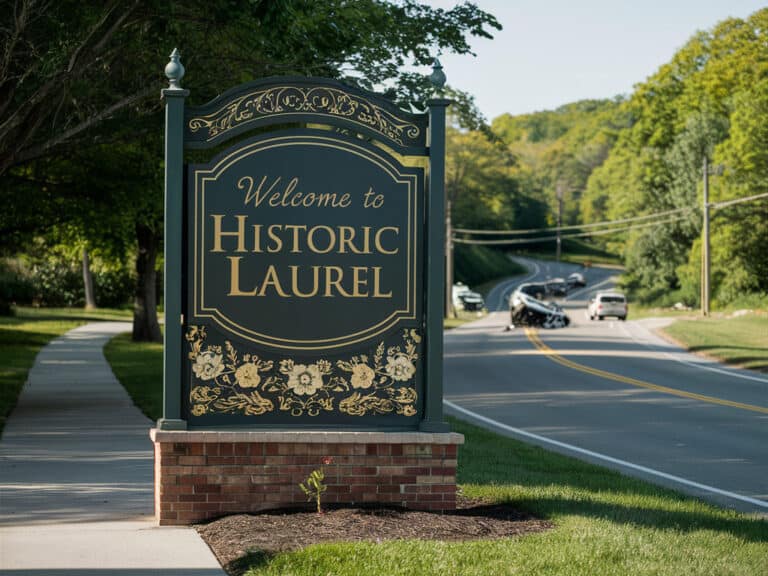- Auto Accidents, Personal Injury
Many people settle a personal injury claim without consulting a Maryland personal injury attorney. Sadly, an accident victim may receive much less compensation than their injury claim is worth if they deal directly with the insurance company. The reasons for avoiding using a personal injury attorney vary, including advice from insurance adjusters that attorneys only want to file lawsuits to collect more attorney fees.
In most cases, personal injury lawyers assist accident victims in settling claims without the necessity of filing a lawsuit. In other cases, an attorney may advise filing a lawsuit to force a resistant insurance company into a position of negotiating a fair and just settlement. Our Maryland personal injury attorneys are highly-trained and skilled trial litigators who do not hesitate to file a lawsuit and proceed to trial if that is in the best interest of our client.
However, we also use alternative dispute resolution (ADR) methods to settle personal injury claims. We find that arbitration and mediation are effective ADR methods in some cases. Our goal is to settle your accident claim as quickly and efficiently as possible while maximizing your chance of recovering full compensation for all injuries.
What is Alternative Dispute Resolution?
Alternative dispute resolution (ADR) is a method of settling a disputed claim without a trial. ADR is used in many areas of law including personal injury cases, contract disputes, and family law cases. If you have a disputed claim against another party, you may want to consider ADR for several reasons.
ADR may be used in a variety of personal injury cases including but not limited to:
- Automobile accidents
- Pedestrian accidents
- Medical malpractice
- Bicycle accidents
- Motorcycle crashes
- Dog bites and animal attacks
- Defective products
- Slips and falls
- Premises liability claims
- Large truck accidents and commercial vehicle accidents
- Wrongful death claims
Benefits of Using ADR to Settle a Personal Injury Claim
While a personal injury lawsuit and a trial may be necessary to protect your legal rights, there are many reasons why using ADR to settle a personal injury claim is beneficial.
Some of the benefits of ADR include:
- Usually less costly than filing a personal injury lawsuit and going through a trial.
- Typically results in a faster settlement than going to trial.
- Keeps the matter private. A trial is a public event. The discussions during ADR and the settlement through ADR can be kept confidential between the parties.
- Both parties can tell their side of events, even though they do not go to trial.
- ADR is more flexible, informal, and can be tailored to the needs of the parties involved.
- Using ADR usually preserves goodwill and does not escalate the conflict.
What is the Difference Between Arbitration and Mediation in a Personal Injury Case?
Arbitration and mediation are both ADR methods used in personal injury cases, but they involve different methods of resolving disputes. Both ADR methods are voluntary in personal injury cases. One of the most important differences between arbitration and mediation is whether the outcome is binding on the parties.
The outcome of a mediation is not binding on either party. The parties choose whether or not they want to accept the results of mediation.
However, arbitration is typically binding on both parties. The ruling of the arbitrator is binding on all parties and takes the place of a court hearing or trial. The parties in the arbitration agree that they will not be free to pursue further legal action and must abide by the conclusion of the arbitrator. Therefore, it is important to discuss all legal options with your Maryland personal injury attorney before agreeing to binding arbitration.
How Does Mediation Work in a Personal Injury Case?
In most cases, the parties agree to hire a neutral third party to facilitate settlement discussions between the parties. The mediator meets with both parties separately or together to listen to the parties’ position related to the dispute. The mediator provides an objective view to help the parties resolve the dispute.
Because mediation is not binding and very flexible, the parties can tailor mediation to their situation. Some parties prefer to deal with the mediator separately, and other parties prefer to hold meetings with the mediator together.
The mediator does not serve the role of judge or juror. The sole role of the mediator is to direct the discussion in a positive and productive manner to arrive at a settlement that is acceptable to both parties. If either party is not happy with the outcome, the party may pursue a lawsuit.
How Does Arbitration Work in a Personal Injury Case?
The parties can choose binding or non-binding arbitration. If both parties agree to binding arbitration, the parties must accept the ruling of the arbitrator. The role of an arbitrator is to listen to the “evidence” presented by both parties during an arbitration meeting. Parties may present physical evidence, testimony, and other evidence as they would in a courtroom. However, the rules of arbitration are much less strict and do not necessarily abide by the rules of court or evidentiary laws.
After listening to both parties, the arbitrator issues his or her decision. The arbitrator should use the same rules and laws that a judge or jury would use to decide the case, even though the setting is much less formal, and the evidentiary laws typically do not apply as they would during a trial.
Contact a Maryland Personal Injury Attorney for More Information
If you are interested in pursuing a settlement through ADR methods, our Maryland personal injury attorneys can explain the details involved in arbitration and mediation in more detail during a free consultation. Contact Pinder Plotkin LLC by calling 410-525-5337 to speak with a Parkville personal injury attorney about your accident claim.





